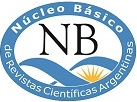IN VITRO STUDIES OF α-TRICALCIUM PHOSPHATE CEMENT MODIFIED WITH β-DICALCIUM SILICATE
Keywords:
tricalcium phosphate cements, hydroxiapatite, bioactivityAbstract
The combination of in situ self-setting and biocompatibility, makes calcium phosphate cements highly promising materials for a wide range of clinical applications. However, its low strength limits their use only to lowstress applications. β-Dicalcium silicate (β-C2S) is a Portland cement component, able to react with water to form a hydrated phase that enhance mechanical strength of material. Different authors reported the bioactive capacity of this compound. In this investigation, α-TCP cements modified with β-C2S were prepared. The α-tricalcium phosphate (αTCP) powder was prepared through acid-base method, and β-C2S was synthesized by sol-gel method. Materials were characterized both chemically and physically. Biodegradability was studied by soaking the materials in simulated body fluid for various time periods. The results showed that a cement with 20 % of β-C2S exhibited greater compressive strength and pH values (19,8 MPa and 8,09 respectively).
Downloads
Downloads
Published
How to Cite
Issue
Section
License

This work is licensed under a Creative Commons Attribution-NonCommercial 4.0 International License.

















